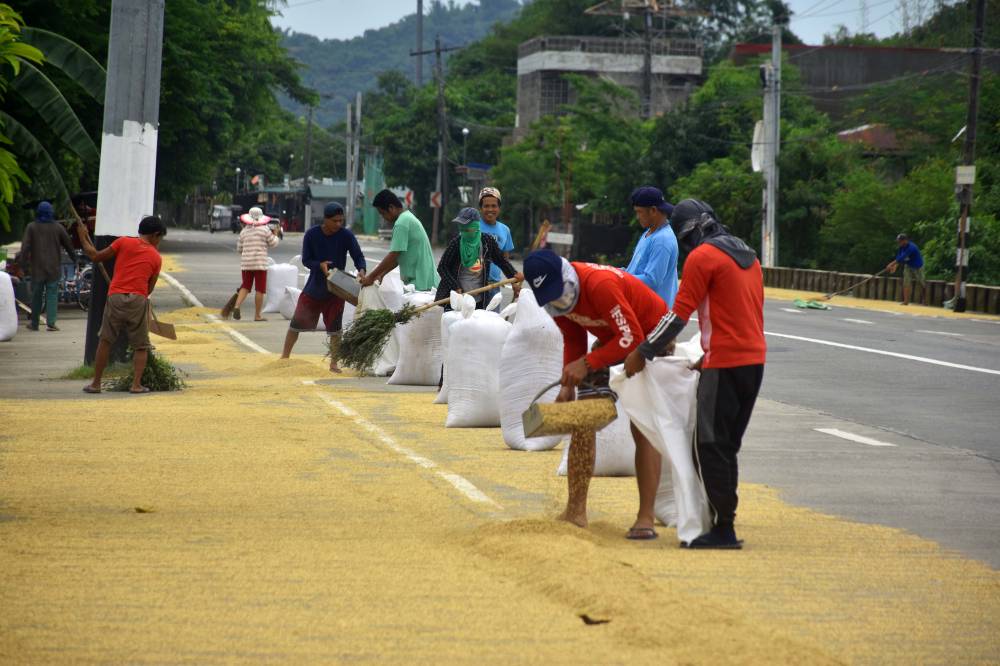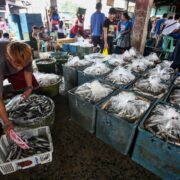Rice processing centers seen to slash grain prices

The days of drying palay (unhusked rice) on roads in farming villages may soon be over as the government starts building postharvest facilities in the regions, beginning with a P130-million complex in Dingras, Ilocos Norte province.
According to the National Food Authority (NFA), the goal of constructing such facilities is to eventually eliminate the traditional way of using national roads for drying palay, which affects not only the quality of local rice but which may also result in road accidents.It said the lack of postharvest facilities, especially rice dryers, in farming areas had prompted the food agency to develop high-capacity dryers and modern rice processing centers across the archipelago.
The planned facility in Dingras town features four 30-metric ton batch recirculating mechanical dryers designed to improve local production, as well as boost rice and corn storage capacity.
The project will also improve existing warehouse infrastructure and auxiliary facilities, allowing the NFA to purchase more palay from Dingras and nearby towns, reduce postharvest losses, and ensure affordable prices of rice in local markets.
The NFA said the facility, part of the Department of Agriculture’s (DA) Masagana Agri-Food Infrastructure Program, will be built for 10 months in time for the main rice harvest season next year.
This represents the first phase of the NFA’s postharvest facility modernization program, aimed at setting up dozens of rice processing centers composed of high-capacity, industrial-grade mechanical dryers, grain silos and rice mills across the country.
“These centers will have the combined capacity to store rice and corn enough to cover national requirements for 30 days,” it said.

Support
Agriculture Secretary Francisco Laurel Jr. said this undertaking was a step toward fulfilling President Marcos’ aspiration of ensuring that Filipino farmers receive the necessary support not only before and during the harvest period, but more so after harvest.
“Through the Dingras postharvest project, we can boost our palay production to ensure that there is stable and sufficient supply of rice here in Dingras and in the whole of Region 1 (Ilocos region),” Laurel said during the groundbreaking ceremony on Friday.
The DA said mechanization had significantly reduced postharvest losses of palay to about 15 percent from 25 percent a decade ago but bringing it down further to single-digit levels would substantially augment local rice supply, control retail prices and reduce reliance on importation.
The NFA plans to build other 30 MT batch recirculating mechanical dryers in Tuguegarao City, Cagayan; Guimba, Nueva Ecija; and Molave, Zamboanga del Sur, as well as 10 MT per hour continuous flow dryers in Dumangas, Iloilo, and Maramag, Bukidnon.
The government has introduced different interventions to provide financial and technical assistance and distribute farm machines to palay producers in the hopes of improving farmers’ income and productivity.Self-sufficiency
To date, the Philippines is not fully dependent on domestic production to meet its palay requirements.
The self-sufficiency ratio (SSR) for rice hit 77 percent last year from 81.5 percent in 2021, marking a downtrend for three consecutive years from 2020 to 2022, based on the data from the Philippine Statistics Authority. SSR refers to the extent to which local output can meet the country’s requirements.
Figures from the PSA showed palay production slightly rose by 0.21 percent to 3.79 million MT in the third quarter of this year.
But the country had also imported 2.93 million MT of rice, mainly from Vietnam, according to the Bureau of Plant Industry’s data as of Nov. 16. INQ

















